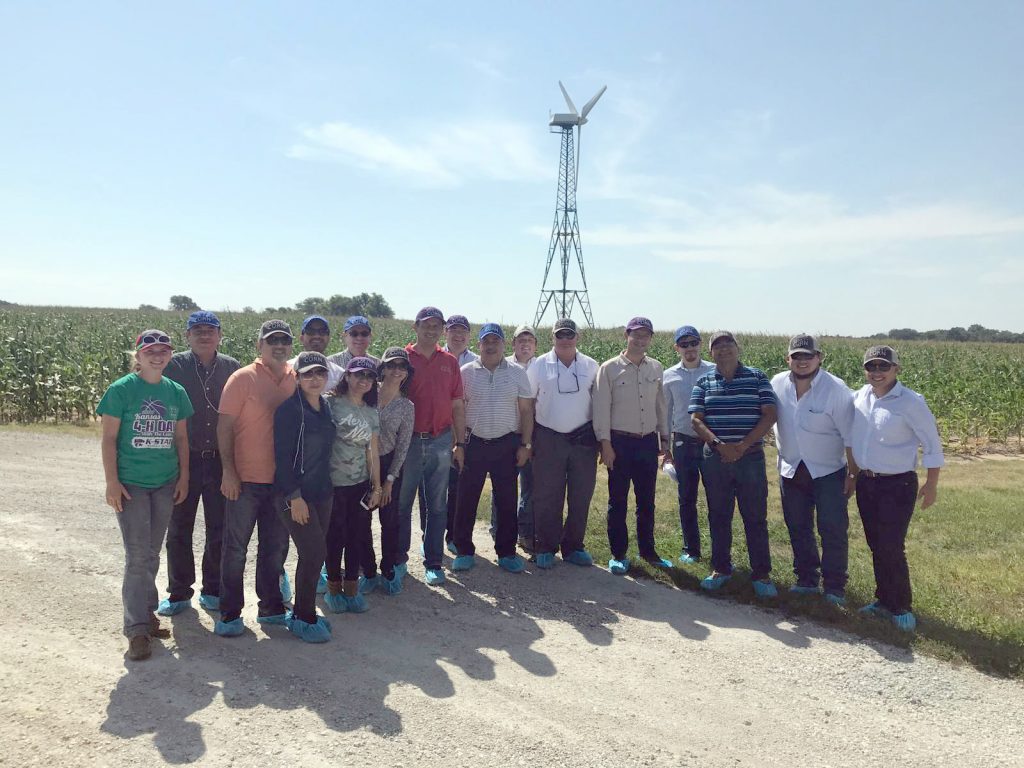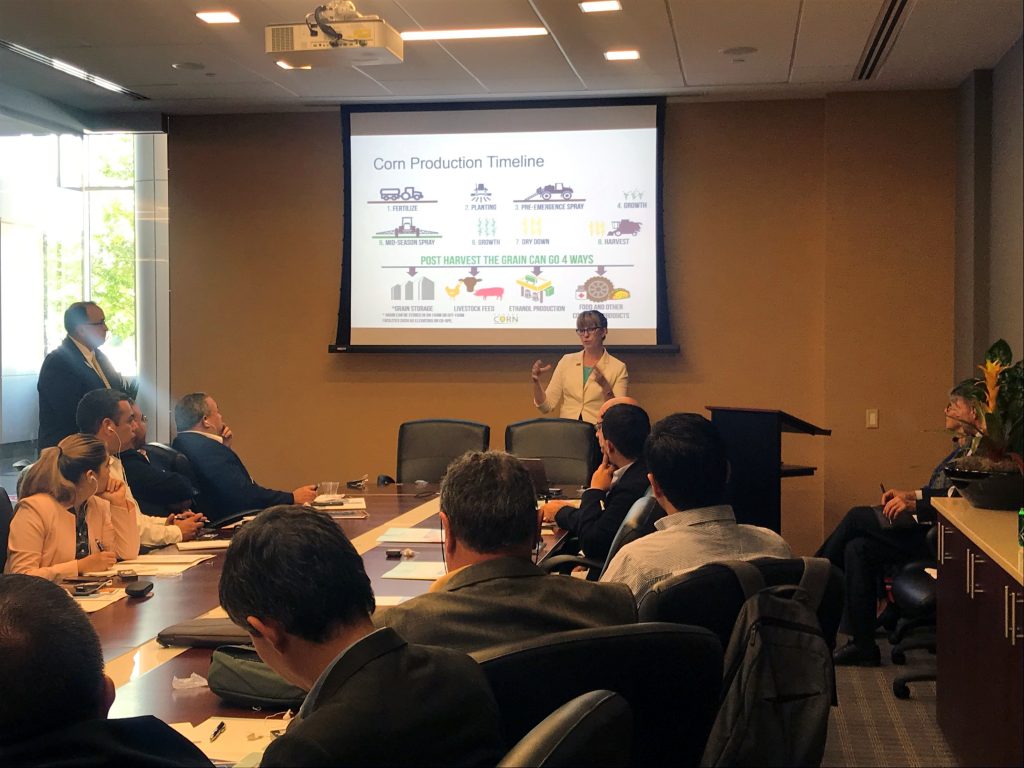Seeing is often believing for trade teams traveling to the United States. Taking a concept like ethanol blending from a technical discussion on paper to firsthand conversations with experts at their facilities provides the relationships and knowledge needed to put similar processes in place back home.
This goal of enabling expanded conversations on ethanol blending is why the U.S. Grains Council (USGC) organized a trade team in July to connect representatives from national refineries, ministeries of energy and other key stakeholders in Latin America with U.S. refiners currently blending ethanol with gasoline.
“The diverse, 15-person mission allowed team members to engage in technical conversations on the cost savings, operational practices and logistics management associated with the blending of ethanol as well as familiarize themselves with the U.S. ethanol industry,” said Carlos Suarez Isaacs, USGC regional ethanol trade specialist for Latin America, who accompanied the team. “The mission also increased each participant’s ability to respond to misinformation and misconceptions related to ethanol use.”
Team members from Chile, Costa Rica, Ecuador, Peru and the Dominican Republic learned firsthand about the economic advantages of ethanol as an octane source. The team participated in educational meetings in Washington, D.C. and tours in Kansas and Texas.
They returned home armed with the information and expert connections to determine the work needed to enable ethanol blending within their own countries. Following the trade team visit, the delegation expressed high interest in actively exploring how to establish blend mandates and incorporate ethanol into gasoline formulations as a way to generate cost savings.
“The Council continues to engage and build partnerships with government and industry throughout Latin America to create and expand ethanol use,” Suarez Isaacs said. “This work includes identifying technical obstacles and elaborating on potential pathways used to develop a biofuels policy based on local capabilities, including the opportunity to import ethanol.”
The legal and regulatory frameworks for producing or blending biofuels varies widely within Latin America, so the Council is working with both government officials and the private sector to identify opportunities for establishing biofuels programs and conveying the benefits of doing so from economic, environmental and technical perspectives. This work includes helping facilitate the gathering and distribution of science-based information on air pollution reduction, engine performance and octane enhancement when using higher blends.
For example, Ecuadorean participation in this trade team continues to build on the Council’s momentum to assist Ecuador with increasing ethanol use. Following this mission, the Ecuadorean delegation presented a recommendation to progressively implement an E10 ethanol blend level nationwide that includes a role for imports to achieve further cost-savings.
“Ethanol use has impacts across multiple public policy dimensions, including air quality, greenhouse gas emissions, agricultural growth, transportation costs and fiscal spending,” Suarez Isaacs said. “As countries implement blend policies or seek to expand ethanol use, they often need to analyze how to maximize benefits and where to set priorities.
“In the case of Ecuador, the government has found that in addition to the benefits from supporting local ethanol production, they can pursue increased ethanol blend levels at a lower cost by enabling imports. A policy with a role for trade supports the push towards even higher blend levels, where both local and international ethanol producers can benefit from a larger market, while the government and consumers capitalize on the savings”.
The Council continues to work to promote the benefits of increased ethanol use with trade team members and other stakeholders in each country through additional technical discussions and workshops, utilizing funding from the U.S. Department of Agriculture’s (USDA’s) Agricultural Trade Promotion (ATP) program.
About The U.S. Grains Council
The U.S. Grains Council develops export markets for U.S. barley, corn, sorghum and related products including distiller’s dried grains with solubles (DDGS) and ethanol. With full-time presence in 28 locations, the Council operates programs in more than 50 countries and the European Union. The Council believes exports are vital to global economic development and to U.S. agriculture’s profitability. Detailed information about the Council and its programs is online at www.grains.org.


